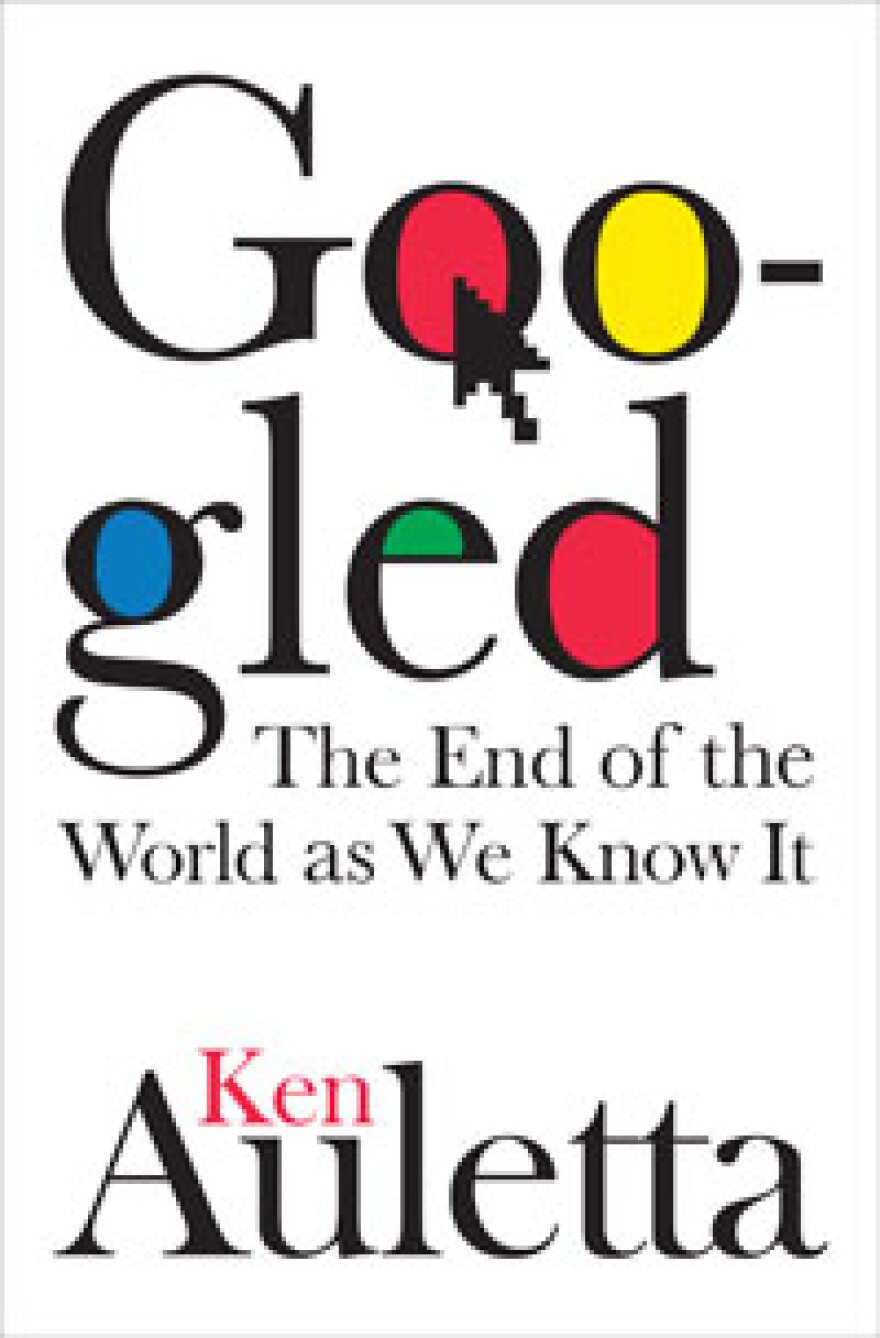Googled reads as a timeline skimming across the key moments in the company's history and providing rote miniature profiles of the key players.
In his new book, Googled, New Yorker writer Ken Auletta sketches Google co-founder Sergey Brin as gregarious and somewhat flashy, a man who keeps a spacesuit in his office in anticipation of a tourist trip aboard the Soyuz. The other co-founder, Larry Page, meanwhile, is more reserved. He's the kind of billionaire who, when dragged to parties, shuns schmoozing with fellow moguls in favor of standing at the sidelines taking snapshots.
Each of these denim-clad prodigies is now 36 — two decades younger than the third member of their triumvirate, Eric Schmidt. As the rare corporate senior manager with a Ph.D. in computer science, Schmidt provides the founders with "adult supervision."
Their shared project is utopian, their ethos is democratic, and their way of doing business is idiosyncratic. One scene in Googled finds Brin giving a playfully fiendish assignment to a lawyer interviewing to be his corporate counsel:
"I need you to draw me a contract," he says. "I need the contract to be for me to sell my soul to the devil."
This is not to suggest any satanic intentions on the company's part. And yet, the request seems contradictory, since the slogan that provides Google with its moral compass is: "Don't be evil."
Auletta's central premise in the book is that the company's numerous leaps forward — and also its occasional missteps — flow from its character as a business founded by engineers, as opposed to businessmen. On the one hand, Google favors clinical efficiency and spurns conventional wisdom; on the other, its practices seem arrogant and tone-deaf.
Consider that the beta release of its Web mail service did not include a delete button. Guided by the reasoning that Gmail offers plentiful storage and also by the paternalistic idea that deciding whether to delete a message is a waste of the user's time, the company presented itself as a squad of Mr. Spocks, logical to a fault. As Auletta puts it, "Google relied so much on science, on data and mathematical algorithms, that it was insensitive to legitimate privacy fears."

"The engineers remain in charge," Auletta writes early on. On the next page, he quotes a former executive declaring Google "an engineering-driven and -focused culture." On the page after that, we hear an employee say, "When a company is filled with engineers, it turns to engineering to solve problems."
We get it already! Among the frustrations of the book is that its premise is also its conclusion and constant drumbeat. This is hardly the only point repeated ad nauseum. The book is rife with facts familiar not only from the books and articles Auletta cites but, at this point, from the canon of chattering-class cocktail-party knowledge. Have you gleaned any new information from this review? If so, this book may well be a pleasure. If not, it certainly will be a slog.
Given the absence of a shapely narrative or a strong point of view, Googled reads as a timeline skimming across the key moments in the company's history and providing rote miniature profiles of the key players. It suffices as a reference book, but few of its points could not be discovered by a Google search in a fraction of a second.
Copyright 2023 NPR. To see more, visit https://www.npr.org.


